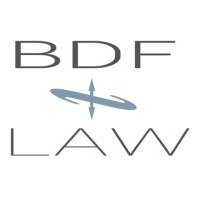Best Elder Abuse Law Lawyers in Launceston
Share your needs with us, get contacted by law firms.
Free. Takes 2 min.
List of the best lawyers in Launceston, Australia
About Elder Abuse Law in Launceston, Australia
Elder abuse law in Launceston, Australia, is part of the broader legal framework designed to protect the rights and wellbeing of older adults. This area of law addresses various forms of abuse that elders may face, including physical, emotional, financial, and neglect. The goal is to ensure that older individuals live in a safe environment, free from harm and with the appropriate care they need. Legal measures may involve both criminal and civil aspects, depending on the nature and severity of the abuse.
Why You May Need a Lawyer
There are several situations where individuals might require legal assistance in the context of elder abuse law:
- Financial Exploitation: An older person may be experiencing undue influence or pressure to gift money or assets.
- Physical Abuse or Neglect: Concerns regarding the physical safety or adequate care of a loved one in a home or care facility.
- Emotional or Psychological Abuse: An elder may be subjected to verbal harassment, intimidation, or isolation.
- Legal Representation: To represent an elder in court if legal action is necessary to protect their interests.
- Guardianship Issues: Navigating disputes or complexities around guardianship or power of attorney matters.
Local Laws Overview
In Launceston, elder abuse law is influenced by both state and federal legislation. Key aspects include:
- Guardianship and Administration Act 1995 (Tas): This act outlines the provisions for appointing guardians and administrators for individuals unable to make decisions themselves.
- Family Violence Act 2004 (Tas): This legislation provides protection for individuals experiencing violence or threats, which is applicable to elder abuse cases.
- Elder Abuse Prevention Framework: Encourages collaboration between government, law enforcement, and community services to prevent elder abuse.
- Powers of Attorney Act 2000 (Tas): Regulates the legal authority granted through power of attorney documents.
Frequently Asked Questions
What is considered elder abuse?
Elder abuse can be physical, emotional, financial, or neglect that results in harm or distress to an older person.
What are the signs of elder abuse?
Signs may include unexplained injuries, sudden financial changes, withdrawal from usual activities, or poor living conditions.
Can elder abuse be reported anonymously?
Yes, you can report suspected elder abuse anonymously to local authorities or support services.
What should I do if I suspect elder abuse?
Consider contacting local elder abuse services or seek legal advice to understand the best course of action.
Who can be held responsible for elder abuse?
The abuser could be a family member, caregiver, or any individual in a position of trust.
Can legal action be taken against elder abuse?
Yes, legal action includes protective orders, removing guardianship, or criminal charges.
How do I apply for guardianship or power of attorney for an elder?
File an application with the relevant local tribunal or court, often requiring legal advice or representation.
What role does the police play in elder abuse cases?
Police can investigate and charge perpetrators of criminal elder abuse. They also provide protection to the victims.
Are there any financial supports for victims of elder abuse?
Yes, various government agencies may provide support and assistance to victims of elder abuse, including legal aid or counseling services.
Can a will be contested if elder abuse is suspected?
Yes, a will can be contested if it’s believed to have been created under conditions of undue influence or fraud.
Additional Resources
Here are some resources and organizations that can be helpful:
- Tasmanian Legal Aid: Provides legal assistance and advice.
- Respect Tasmania: Offers resources and support for elder abuse prevention.
- Advocacy Tasmania: Assists with advocacy and support for elder citizens.
- Elder Abuse Helpline: A dedicated helpline to report and discuss concerns of elder abuse.
Next Steps
If you believe you or someone you know is experiencing elder abuse, consider taking the following steps:
- Contact a lawyer specializing in elder abuse law for personalized legal advice and representation.
- Reach out to local support organizations for guidance and assistance.
- If the situation is an emergency or has elements of financial abuse, report it to the police or appropriate authorities immediately.
- Document everything related to the abuse, including dates, times, and accounts of incidents, to support any legal proceedings.
Understanding your rights and resources is key to protecting yourself or your loved ones from elder abuse. Don't hesitate to seek professional assistance to navigate this challenging issue.
Lawzana helps you find the best lawyers and law firms in Launceston through a curated and pre-screened list of qualified legal professionals. Our platform offers rankings and detailed profiles of attorneys and law firms, allowing you to compare based on practice areas, including Elder Abuse Law, experience, and client feedback.
Each profile includes a description of the firm's areas of practice, client reviews, team members and partners, year of establishment, spoken languages, office locations, contact information, social media presence, and any published articles or resources. Most firms on our platform speak English and are experienced in both local and international legal matters.
Get a quote from top-rated law firms in Launceston, Australia — quickly, securely, and without unnecessary hassle.
Disclaimer:
The information provided on this page is for general informational purposes only and does not constitute legal advice. While we strive to ensure the accuracy and relevance of the content, legal information may change over time, and interpretations of the law can vary. You should always consult with a qualified legal professional for advice specific to your situation.
We disclaim all liability for actions taken or not taken based on the content of this page. If you believe any information is incorrect or outdated, please contact us, and we will review and update it where appropriate.











